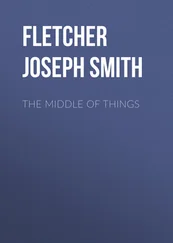I raise my hand and the sheepdog, waiting for this moment and knowing it to be the right one, looks at me with all of her eyes’ pity. Without my whistle needing to tell her, I see her round up the sheep and drive them toward the farmstead. Beneath my black sheepskin and beneath my shirt, what’s left of me impels me onward. At each step, I thrust my staff forward. In a long and slow arc, it strikes the ground and I pass beyond it, as if I were always, always passing myself. Onward I walk, and I remember her and remember Salomão and remember my mother. In the same whirling thought: her, Salomão, my mother. Her sad gaze, Salomão’s childish gaze begging please, my mother’s gaze of death and mourning. Onward I walk, and with me, within my steps, sitting still by the fire far away from here, my mother also walks. Her waiting for death where she always remains is her way of walking in time. And only in time can we walk. Even if our feet tread the ground, as mine seem to do, only in time can we walk. Right now she’s gazing at the fire. The fire that gently burns. Forever gently. In the slow combustion of a heart engulfed by a gentle suffering. Gentle and incessant. A fire of suffering oppressing her heart. My mother who knows and gazes at a secret, who sees death in that secret, who gazes at the fire and sees me. Mother, your waiting is almost done, but not your suffering. I think: not to exist, to be the forgotten thought of someone forgotten forever, to repeatedly die when already dead. The sheep are my silence walking ahead of me. Salomão, my cousin whom I never called cousin, the son of my father’s sister, Salomão, the frightened little boy who would come around and confuse cork trees with olive trees, suppose that thrushes were swallows, and call the sheep as if calling a dog, holding out his closed fist saying come get your treat, Salomão, where are you now? Where did life lose you? Where did life lose us both? I think: not to exist, to be the forgotten thought of someone forgotten forever, to repeatedly die when already dead. And her. Woman. Promises. Her face. I never lied to you. If I said sky to you, it was sky. If I said sun or water, it was sun or water. If I said morning, it was the morning of your eyes deceiving me. Without your eyes deceiving me. The deceit of a morning that was born in your eyes. We dreamed. We dreamed and were blind. And I’m not afraid of the word love. I’m not afraid of words. Look how I say death: death death death death death. By repeating it so much I take away its meaning. I take death away from death. I take away darkness and solitude. Death death death death death. I’m not afraid of words. Once more I see your eyes before my own, morning, and I want this to be our last word: love.
And I keep walking on the road to the Mount of Olives, I continue, I go on. The heat. The earth. The sheep the size of my shadow. I see old Gabriel. He looks at me with anguish. I keep walking, I continue, I go on. I’m in a hurry. He says don’t go, with his voice the same as when I was ten years old, he says don’t go, I remember sitting and listening to him for a long time, don’t go, that important voice, don’t go, if I could I’d sit down and stay with him, as I did when I was ten and the sun shone on us with its last rays and living wasn’t a sad thing. Don’t go. I have to go. I’m in a hurry. I keep walking, I continue, I go on. Behind me old Gabriel dies on top of the bare earth. Lifeless old Gabriel is the earth. I’m in a hurry. Never again the trees. Old Gabriel. Never again the earth. I’m in a hurry. Everything waits for me where I don’t exist. Nothing exists anywhere that I’m not, and I’m not anywhere. Everything waits for me to destroy me yet more. I’m in a hurry to reach a conclusion. I’m in a hurry to disappear. Up ahead lies the Mount of Olives, the sun. I keep walking, I continue, I go on. I’m solitude.
AND THE WORLD ENDED. INEXPLICABLY, or without an explanation that can be stated and understood. The world ended, like a shutting of the eyes in which not even the things we see with eyes shut are seen. The children died, and with them their laughter, scattered in the sunlight and on Saturdays and in August. The world ended, as if swallowed by a night descended from heaven, and never again was the laughter of children heard, never again was it Saturday, never again was it August, never again was there sunlight. And this absence of the world wasn’t even an absence, it wasn’t even the empty space once occupied by a person who died and which you can look at and which exists when you feel it. It wasn’t even an absence, because there was no one to feel it. It was an infinite night concentrating all the fear of all nights since the first night of the world. But not even fear existed, because no one existed to feel it. The place of the trees, their shapes and their thoughts had died. The streams, their cool water, the barely audible sound of their cool waters, the streams had died. The sprawling fields, the dry leaves, the stones lost in the ground, the vastness of the fields, the wind over the earth, the fields of wheat stretching as far as the eye can see, the earth had died. The houses with their whitewashed walls had died. The birds in flight, their late-afternoon chirping, had died. There were no more afternoons, mornings, evenings. Never again would the day slowly dawn with blurry eyes; never again would anyone sit and dream of peace in early evening; never again would the night drift over houses, covering them with its star-studded cape. The world ended, and not even time continued. The minutes didn’t pass because they didn’t exist, even as no moment and no gaze existed. Infinity was the infinity of not even being infinite, nor anything at all. Amid all the dead things death didn’t exist. There were no cadavers. The memory of death had died. The children had died, which was the only thing worth crying over, but no one cried, for there was no more sorrow, no more tears, no more eyes, and no breast for crying. José and his mother, Salomão and his wife, the devil and the widowed cook had all died, among all the men and women who had died, like specks of a gigantic multitude all dying at the same instant without anyone realizing that they were dying and that everything was dying. Everyone disappeared, leaving nothing behind, not even the tiny nothingness that exists in the nothing that exists in nothing. They didn’t even leave behind the cemeteries full of corpses, since these all disappeared even more than everything else, all having died their yet more definitive, second death. The voice shut inside the trunk ceased forever, with neither the meaning nor the silence of its words surviving. The man shut in the windowless room writing stopped short in mid-sentence, and the end, for him, was the ink disappearing from the pages he had lived, it was the sheets of paper fleeing from themselves and becoming the most absolute void of all, it was memory transformed into less than air, less than wind. The world ended. And nothing remained. No certainties. No shadows. No ashes. No gestures. No words. No love. No light. No sky. No roads. No past. No ideas. No smoke. The world ended. And everything was a blank. A blank smile. A blank thought. Blank hope. Blank comfort. Blank gaze.
JOSÉ LUÍS PEIXOTO was born in 1974 in the Portuguese region of Alentejo. A poet, playwright, and novelist, he has received numerous awards for his writing. Published and acclaimed in more than twelve languages, The Implacable Order of Things (Nenhum Olhar) won the José Saramago Literary Award in 2001.












